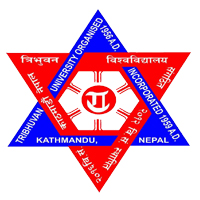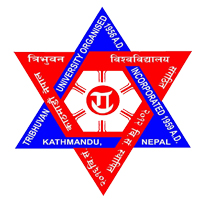Overview
PhD Physics at Central Department of Physics, Tribhuvan University, Kirtipur, Kathmandu, Nepal
Course Overview: The Ph.D. program offered by the Central Department of Physics at Tribhuvan University is designed for individuals seeking advanced knowledge and expertise in the field of Science and Technology. The program aims to develop students' research and teaching skills while contributing to scientific theory and/or experimentation through original research.
Course Outlines:
The Ph.D. program at the Central Department of Physics follows the rules and regulations set by the Research Committee (RC-IOST) under the guidance of the Dean, in accordance with Tribhuvan University Organization and Academic Administration Rule 2050, Chapter 3, Section 9. The program is conducted based on the following guidelines and regulations.
Duration:
The duration of the Ph.D. program varies depending on the type of researcher: (a) Full-time researcher: The thesis for full-time researchers should be submitted after three years of registration. However, exceptional work evidenced by standard publications may allow for thesis submission after two years of registration. If the candidate fails to submit the thesis within five years of registration, the registration will be automatically canceled. (b) Part-time researchers: The thesis for part-time researchers should be submitted after completion of five years from the date of registration. The thesis must be submitted within seven years of registration, and failure to do so will result in automatic cancellation of the registration. This rule also applies to part-time researchers enrolled before the amendment of Ph.D. program regulations in 2071.
Fees Structure:
The registration and monthly fees for part-time researchers are twice the amount compared to full-time researchers. Full-time faculty members of Tribhuvan University receive a 50% waiver on the monthly fee.
Re-Registration: If a candidate fails to submit the thesis within the specified time but has made substantial progress, they can request re-registration on the same topic and under the same supervisor. Re-registration can be done by submitting a fresh application to the Central Department within one month of the registration's expiry. In such cases, the candidate can submit the thesis within two years (full-time researcher) or three years (part-time researcher) from the date of re-registration. Failure to submit the thesis within the specified time will result in automatic cancellation of re-registration. The fee for re-registration is double the normal registration fee.
Eligibility: To be eligible for enrollment and registration in the Ph.D. program, candidates must have obtained at least a second division in M.Sc. in Physics from Tribhuvan University or from any other university recognized by Tribhuvan University.
Admission Criteria:
Enrollment and Registration: Interested candidates must apply to the respective Central Department where they intend to work on a subject related to their research. The application form and processing charge for enrollment can be obtained from the concerned Central Department of IOST. The application should include a research proposal, CVs of the candidate, supervisor, and co-supervisor(s), a list of publications, recommendation from the supervisor, a no-objection letter from the employer, and an assurance letter of study leave (for full-time candidates).
The Central Department Research Committee (CDRC) evaluates the research proposal and application. The candidate is required to defend the proposal in front of the CDRC to demonstrate adequate knowledge in the proposed field of study. The CDRC also certifies that the proposed subject can be pursued within the department or other relevant departments or research centers of Tribhuvan University or other recognized research institutes. Permission/consent from the Head of Department/Laboratory/Institute/Research Centre must be attached to the application.
After evaluation and necessary revisions, if any, the CDRC recommends the application to the Research Committee of IOST for registration into the Ph.D. program. The IOST organizes a meeting of the Research Committee to approve the recommendation. The decision on the application is communicated to the CD Head, the concerned institute, the candidate, and the supervisor within two months. Upon approval, the candidate must register with IOST.
The candidate receives provisional registration for one year from the Dean's office. Within this period, the candidate must demonstrate their research ability. After receiving a recommendation from the CDRC, the Research Committee of IOST considers the candidate as a Ph.D. student. The title of the Ph.D. thesis is provisional at the time of registration and is finalized six months before the thesis submission, subject to approval by the Research Committee after CDRC's recommendation.
If approved, the candidate registers with IOST by paying the registration and other fees determined by the Research Committee. The fees are charged until the final submission of the thesis.
Learning Outcomes:
The Ph.D. program aims to achieve the following learning outcomes:
- Develop advanced research skills and expertise in the field of Physics.
- Conduct original research contributing to scientific theory and/or experimentation.
- Demonstrate a high standard of academic excellence in the chosen field.
- Enhance teaching abilities and contribute to the dissemination of knowledge.
- Publish research findings in reputable scientific journals.
- Contribute to scientific and technological advancements in Nepal and beyond.
Scope:
A Ph.D. in Physics opens up diverse career opportunities:
- Academic positions in universities and research institutions.
- Scientific research and development in industries and laboratories.
- Government research agencies and national/international scientific organizations.
- Consulting and advisory roles in the private sector.
- Entrepreneurship and innovation in science and technology.
Career Prospects:
With a Ph.D. in Physics, graduates can pursue a range of careers such as:
- Professor or lecturer in Physics at universities and colleges.
- Research scientist in government research agencies or private companies.
- Principal investigator in scientific research projects.
- Science policy analyst or consultant.
- Technical expert in industries related to technology, energy, aerospace, etc.
- Entrepreneur or innovator in scientific ventures.
Why Choose this Course:
The Ph.D. program in Physics at the Central Department of Physics, Tribhuvan University, offers several benefits:
- Advanced knowledge and expertise in Physics through rigorous research.
- Opportunities to work with renowned faculty members and researchers.
- Access to state-of-the-art laboratory facilities and research resources.
- Contribution to scientific advancements and societal development.
- Potential for academic and professional growth in the field of Physics.
- Networking opportunities with experts and researchers in the field.
Scholarship:
For information on scholarships available for the Ph.D. program, it is recommended to contact the administration office of the Central Department of Physics, Tribhuvan University, Kirtipur, Kathmandu, Nepal.














